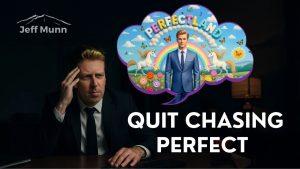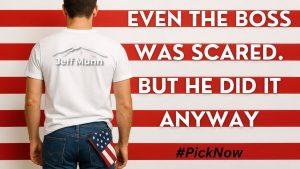
A founder recently told me she was playing four-dimensional chess—trying to think five moves ahead, mapping out every scenario before making a move. She believed if she thought hard enough, she could figure it all out in advance.
Here’s the problem: that won’t work.
You Can’t Know in Advance
Have you ever rehearsed a conversation in your head, only to have it take a sharp left turn 15 seconds in? That’s every difficult conversation I’ve ever had. And it’s also what it’s like to run a company.
You can’t know how everything is going to unfold. You can’t plan for every variable. So stop trying.
Here’s what I do know—something unexpected will show up. And in that moment, you will figure it out.
Whether it’s having a difficult conversation or running a company, that capacity is your superpower.
But You Do Know the Next Step
You already know what to do next. Sure, maybe you’ve been avoiding it, thinking that time or analysis will give you more clarity. But chances are you’re just scared.
Do that thing.
See what happens.
Let the feedback—data, reactions, direction—come back to you.
Then make the next choice.
And then the next.
Don’t Wait for the Perfect Choice. Just Make the Next One
Running a business isn’t about perfection. It’s about momentum. It’s about stacking small, timely decisions and seeing where they lead.
Waiting doesn’t reduce the risk. It just compounds the stress. Action brings relief and clarity.
So quit thinking you can figure it all out before you make the first move. Make a move and see what happens. Over and over. Soon, you will find you have built something extraordinary.
What’s something you’ve been waiting for that you could start today?


